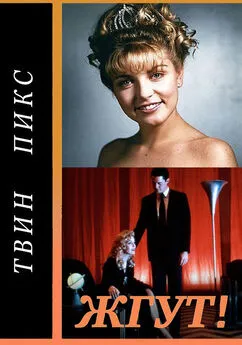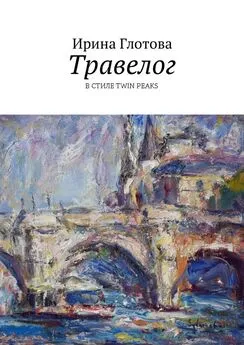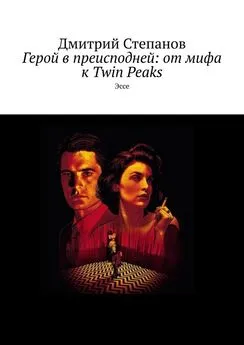Peake, Mervyn - 02 Gormenghast
- Название:02 Gormenghast
- Автор:
- Жанр:
- Издательство:неизвестно
- Год:неизвестен
- ISBN:нет данных
- Рейтинг:
- Избранное:Добавить в избранное
-
Отзывы:
-
Ваша оценка:
Peake, Mervyn - 02 Gormenghast краткое содержание
02 Gormenghast - читать онлайн бесплатно полную версию (весь текст целиком)
Интервал:
Закладка:
Who next? Socially, there is no one else. That is to say no one who, during the first few years of Titus' life, plays any part that bears upon the child's future: unless it be the poet, a wedge-headed and uncomfortable figure little known to the hierophants of Gormenghast, though reputed to be the only man capable of holding the earl's attention in conversation. An all-but-forgotten figure in his room above a precipice of stone. No one reads his poems, but he holds a remote status - a gentleman, as it were, by rumour.
Blue blood aside, however, and a shoal of names floats forward. The lynch-pin son of the dead Sourdust, by name Barquentine, Master of Ritual, is a stunted and cantankerous pedant of seventy, who stepped into his father's shoes (or, to be exact, into his 'shoe', for this Barquentine is a one-legged thing who smites his way through ill-lit corridors on a grim and echoing crutch).
Flay, who has already appeared as his own ghost, is very much alive in Gormenghast forest. Taciturn and cadaverous, he is no less than Barquentine a traditionalist of the old school. But, unlike Barquentine, his angers when the Law is flouted are uprisings of a hot loyalty that blinds him, and not the merciless and stony intolerance of the cripple.
To speak of Mrs. Slagg at this late juncture seems unfair. That Titus himself, heir to Gormenghast, is her charge, as was Fuchsia in her childhood, is surely enough to place her at the head of any register. But she is so minute, so frightened, so old, so querulous, she neither could, nor would, head any procession, even on paper. Her peevish cry goes out: 'Oh, my weak heart! how 'could' they?' and she hurries to Fuchsia either to smack the abstracted girl in order to ease herself, or to bury the wrinkled prune of her face in Fuchsia's side. Alone in her small room again, she lies upon her bed and bites her minute knuckles.
There is nothing frightened or querulous about young Steerpike. If ever he had harboured a conscience in his tough narrow breast he had by now dug out and flung away the awkward thing - flung it so far away that were he ever to need it again he could never find it.
The day of Titus' birth had seen the commencement of his climb across the roofs of Gormenghast and the end of his servitude in Swelter's kitchen - that steaming province which was both too unpleasant and too small to allow for his flexuous talents and expanding ambition.
High-shouldered to a degree little short of malformation, slender and adroit of limb and frame, his eyes close-set and the colour of dried blood, he is still climbing, not now across the back of Gormenghast but up the spiral staircase of its soul, bound for some pinnacle of the itching fancy - some wild, invulnerable eyrie best known to himself; where he can watch the world spread out below him, and shake exultantly his clotted wings.
Rottcodd is fast asleep in his hammock at the far end of the hall of the Bright Carvings, that long attic room that houses the finest examples of the Mud Dwellers' art. It is seven years since he watched from the attic window the procession far below him wind back from Gormenghast lake, where Titus had come into his Earldom, but nothing has happened to him during the long years apart from the annual arrival of fresh works to be added to the coloured carvings in the long room.
His small cannon-ball of a head is asleep on his arm and the hammock is swaying gently to the drone of a vinegar-fly.
THREE
About the rough margins of the castle life - margins irregular as the coastline of a squall-rent island, there were characters that stood or moved gradually to the central hub. They were wading out of the tides of limitless negation - the timeless, opaque waters. Yet what are these that set foot on the cold beach? Surely so portentous an expanse should unburden itself of gods at least; scaled kings, or creatures whose outstretched wings might darken two horizons. Or dappled Satan with his brow of brass.
But no. There were no scales or wings at all.
It was too dark to see them where they waded; although a blotch of shadow, too big for a single figure, augured the approach of that hoary band of Professors, through whose hands for a while Titus will have to wriggle.
But there was no veil of half-light over the high-shouldered young man who was entering a small room rather like a cell that opened from a passage-way of stones as dry and grey and rough as an elephant's hide. As he turned at the doorway to glance back along the corridor, the cold light shone on the high white lump of his brow.
As soon as entered he closed the door behind him and slid the bolt. Surrounded by the whiteness of the walls he appeared, as he moved across the room, weirdly detached from the small world surrounding him. It was more like the shadow of a young man, a shadow with high shoulders, that moved across whiteness, than an actual body moving in space.
In the centre of the room was a simple stone table. Upon it, and grouped roughly at its centre, were a whorl-necked decanter of wine, a few sheafs of paper, a pen, a few books, a moth pinned to a cork, and half an apple.
As he moved past the table he removed the apple, took a bite and replaced it without slackening his pace, and then suddenly looked for all the world as though his legs were shrinking from the ground up, but the floor of the room sloped curiously and he was on his way down a decline in the floor that sank to a curtain-hung opening in the wall.
He was through this in a moment, and the darkness that lay beyond took him, as it were, to herself, muffling the edges of his sharp body.
He had entered a disused chimney at the ground level. It was very dark, and this darkness was not so much mitigated as intensified by a series of little shining mirrors that held the terminal reflections of what was going on in those rooms which, one above the other, flanked the high chimney-like funnel that rose from where the young man stood in the darkness to where the high air meandered over the weather-broken roofs, which, rough and cracked as stale bread, blushed horribly in the prying rays of sundown.
Over the course of the last year, he had managed to gain entrance to these particular rooms and halls, one above the other, which flanked the chimney, and had drilled holes through the stone-work, wood and plaster - no easy work when the knees and back are strained against the opposite walls of a lightless funnel - so that the light pierced through to him in his funnel'd darkness from apertures no wider than coins. These drilling operations had, of course, to be carried out at carefully chosen times, so that no suspicion should be aroused. Moreover, the holes had as nearly as possible to be drilled at selected points, so as to coincide with whatever natural advantages the rooms might hold.
Not only had he carefully selected the rooms which he felt it would be worth his while watching from time to time either for the mere amusement of eavesdropping for its own sake - or for the furtherance of his own designs.
His methods of disguising the holes which might so easily have been detected if badly positioned, were varied and ingenious, as for example in the chamber of the ancient Barquentine, Master of Ritual. This room, filthy as a fox's earth, had upon its right-hand wall a blistered portrait in oils of a rider on a piebald horse, and the young man had not only cut a couple of holes in the canvas immediately beneath the frame where its shadow lay like a long black ruler, but he had cut away the rider's buttons, the pupils of his eyes as well as those of the horse's. These circular openings at their various heights and latitudes afforded him alternative views of the room according to where Barquentine chose to propel his miserable body on that dreaded crutch of his. The horse's eye, the most frequently, used of the apertures, offered a magnificent view of a mattress on the floor on which Barquentine spent most of his leisure moments, knotting and re-knotting his beard, or sending up clouds of dust every time he raised and let fall his only leg, a withered one at that, in bouts of irritation. In the chimney itself, and immediately behind the holes, a complicated series of wires and mirrors reflected the occupants of the de-privatized rooms and sent them down the black funnel, mirror glancing to mirror, and carrying the secrets of each action that fell within their deadly orbit - passing them from one to another, until at the base a constellation of glass provided the young man with constant entertainment and information.
In the darkness he would turn his eyes. for instance, from Craggmire, the acrobat, who crossing his apartment upon his hands might frequently be seen tossing from the sole of one foot to the sole of the other a small pig in a green nightdress - would turn his eyes from this diversion to the next mirror which might disclose the Poet, tearing at a loaf of bread with his small mouth, his long wedge of a head tilted at an angle, and flushed with the exertion, for he could not use both hands - one being engaged in writing; while his eyes (so completely out of focus that they looked as though they'd never get in again) were more spirit than anything corporeal.
But from the young man's point of view there were bigger fish than these - which were, with the exception of Barquentine, no more than the shrimps of Gormenghast - and he turned to mirrors more deadly, more thrilling: mirrors that reflected the daughter of the Groans herself - the strange raven-haired Fuchsia and her mother, the Countess, her shoulders thronged with birds.
FOUR
I
One summer morning of bland air, the huge, corroding bell-like heart of Gormenghast was half asleep and there appeared to be no reverberation from its muffled thudding. In a hall of plaster walls the silence yawned.
Nailed above a doorway of this hall a helmet or casque, red with rust, gave forth into the stillness a sandy and fluttering sound, and a moment later the beak of a jackdaw was thrust through an eye-slit and withdrawn. The plaster walls arose on every side into a dusky and apparently ceilingless gloom, lit only by a high, solitary window. The warm light that found its way through the web-choked glass of this window gave hint of galleries yet further above but no suggestion of doors beyond, nor any indication of how these galleries could be reached. From this high window a few rays of sunlight, like copper wires, were strung steeply and diagonally across the hall, each one terminating in its amber pool of dust on the floorboards. A spider lowered itself, fathom by fathom, on a perilous length of thread and was suddenly transfixed in the path of a sunbeam and, for an instant, was a thing of radiant gold.
There was no sound, and then - as though timed to break the tension, the high window was swung open and the sunbeams were blotted out, for a hand was thrust through and a bell was shaken. Almost at once there was a sound of footsteps, and moment later a dozen doors were opening and shutting, and the hall was thronged with the criss-crossing of figures.
The bell ceased clanging. The hand was withdrawn and the figures were gone. There was no sign that any living thing had ever moved or breathed between the plaster walls, or that the many doors had ever opened, save that a small whitish flower lay in the dust beneath the rusting helmet, and that a door was swinging gently to and fro.
II
As it swung, broken glimpses were obtained of a whitewashed corridor that wound in so slow and ample a curve that by the time the right-hand wall had disappeared from view the roof of the passageway appeared no more than the height of an ankle from the ground.
This long, narrowing, ash-white perspective, curving with the effortless ease of a gull in air, was suddenly the setting for action. For something, hardly distinguishable as a horse and rider until it had cantered a full third of the long curve to the deserted hall, was rapidly approaching. The sharp clacking of hooves was all at once immediately behind the swinging door, which was pushed wide by the nose of a small grey pony.
Читать дальшеИнтервал:
Закладка:



